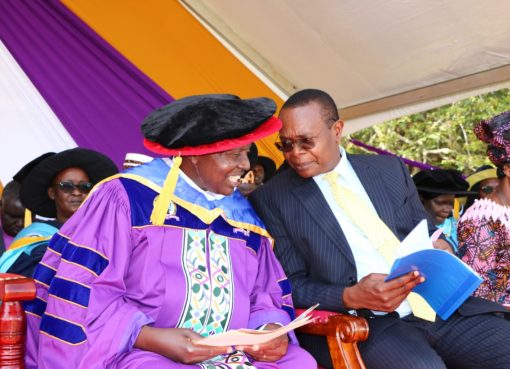The Director General Kenya National Bureau of Statistics (KNBS) George Obudho has underscored the need to break down statistical information for easy understanding and use by the common mwananchi.
Obudho said statistical reports are public goods and should be interpreted in a way that ordinary Kenyans can understand.
‘‘The reports should be simple and well disaggregated in a way that can be understood by the general public. They should also give a lot of interpretation so that the statistics can be used well,” he said.
The Director General speaking on Tuesday at Kwa Kathoka Agricultural Training Centre in Kathonzweni sub county during the launch of the county statistical abstract also called for wide dissemination of statistical information to the public.
“Kenyans have a right to know what is contained in the reports and they should be availed to honour the citizen’s entitlement to public information,” noted Obudho.
He espoused the importance of high quality statistics and disclosed that KNBS was in the process of drawing a Kenya Quality Assurance Framework (KenQAF) to monitor and assess the quality of the official statistics in the country.
Obudho lauded the county government for launching the statistical abstract and urged other counties to emulate the initiative.
He noted that the abstract produced in collaboration with KNBS will help the devolved unit in formulation of evidence based policies, planning, budgetary process as well as monitoring and evaluation of various programmes at the county level.
“I wish to commend Makueni county for producing the report despite the challenges the country is facing. We recognize and applaud this major milestone in availing statistics to meet the ever-growing demand for disaggregated information,” added the director general.
Obudho reiterated KNBS’ commitment in assisting county governments and any other institution in producing official statistics as stipulated in the Statistics Act, 2006.
Speaking at the same launch the county Governor Prof. Kivutha Kibwana said the information contained in the report will help address data gaps at the county level and strengthen decision making based on evidence.
Prof. Kivutha hailed the report as a major milestone for the county government that has for a long time relied on the data collected by the national government.
“It is about time that we take charge of our own data collection, collation and analysis as the primary and secondary users,” said the governor.
by Roselyne Kavoo





